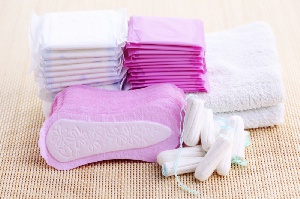Stakeholders within the health and education sectors have underscored for the need for more concrete action to be taken in order to empower women and girls to enhance their menstrual hygiene management.
They also called on government to provide education for girls and boys, reduce the cost or donate menstrual hygiene materials to girls in order to facilitate Menstrual Hygiene Management.
This was contained in a press statement signed by Madam Cassandra Twum Ampofo, Head of Public Relations Unit of the Ghana Education Service and copied the Ghana News Agency to commemorate this year’s Menstrual Hygiene Management Day.
The day which is marked on May 28 every year is aimed at promoting good Menstrual Hygiene Management practices as well as to raise awareness and challenges all women and girls face.
This was marked under the theme “It’s Time for Action”.
The statement said several girls, as a result of misinformation, myth and harmful practices relating to menstruation had had their future interrupted. About 26 per cent of the global population menstruates between two and seven days each month, 3000 days in a lifetime with and seven million girls and women in Ghana going through the cycle, hence the need to increase awareness. “We know that menstruation is still one of the silent topics that is not often discussed in homes. Both fathers and mothers shy away from the topic and girls often struggle to obtain the necessary information about menstruation” the statement noted.
The statement further noted that menstrual hygiene materials continued to burden women and girls because many girls and women do not have adequate access to the requisite type of materials to manage their periods, resulting in the use of inappropriate materials like cloth and newspaper, leading to infections.
“Menstrual Hygiene materials especially the disposable ones, come at a very high cost for most girls and parents alike. Psychological trauma and lack of confidence during menstruation also negatively affect Ghanaian girls. It should therefore matter to everyone, everywhere as a natural phenomenon, that should be talked about”, it said.
It said women and girls’ menstrual cycle were affected differently depending on social norms, customs, education, geography and socio-economic factors and therefore called on them to always be on their guard, whether they were at home, school, at work or when travelling to ensure that they managed this with dignity.
It urged parents to provide the need support to girls with disabilities during this period to ensure that they had a dignified menstrual period.
“Women and girls with disabilities often have special needs and requirements to enable them to manage their menstruation in a normal and dignified way. Support should be provided”.
It also assured women and girls of its continuous support through the provision of information and the right materials to manage their periods and having access to safe, private clean toilets in their communities, schools and at home.
The Ghana Education Service was leading this commemoration, with the active involvement of several partners who had contributed to the support of Menstrual Hygiene Management in Ghana, including UNICEF, Global Affairs Canada, Korea International Corporation, Greater Accra Municipal Area Sanitation and Water Project, World Bank, World Vision Ghana, Water Aid Ghana, Days for Girls, Global Communities and USAID, it stated.
Health News of Thursday, 30 May 2019
Source: GNA

















